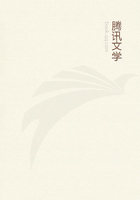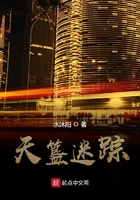Instead of the function of governing, for which it is radically unfit, the proper office of a representative assembly is to watch and control the government: to throw the light of publicity on its acts: to compel a full exposition and justification of all of them which any one considers questionable; to censure them if found condemnable, and, if the men who compose the government abuse their trust, or fulfil it in a manner which conflicts with the deliberate sense of the nation, to expel them from office, and either expressly or virtually appoint their successors. This is surely ample power, and security enough for the liberty of the nation. In addition to this, the Parliament has an office, not inferior even to this in importance; to be at once the nation's Committee of Grievances, and its Congress of Opinions; an arena in which not only the general opinion of the nation, but that of every section of it, and as far as possible of every eminent individual whom it contains, can produce itself in full light and challenge discussion; where every person in the country may count upon finding somebody who speaks his mind, as well or better than he could speak it himself- not to friends and partisans exclusively, but in the face of opponents, to be tested by adverse controversy; where those whose opinion is overruled, feel satisfied that it is heard, and set aside not by a mere act of will, but for what are thought superior reasons, and commend themselves as such to the representatives of the majority of the nation; where every party or opinion in the country can muster its strength, and be cured of any illusion concerning the number or power of its adherents; where the opinion which prevails in the nation makes itself manifest as prevailing, and marshals its hosts in the presence of the government, which is thus enabled and compelled to give way to it on the mere manifestation, without the actual employment, of its strength; where statesmen can assure themselves, far more certainly than by any other signs, what elements of opinion and power are growing, and what declining, and are enabled to shape their measures with some regard not solely to present exigencies, but to tendencies in progress.
Representative assemblies are often taunted by their enemies with being places of mere talk and bavardage. There has seldom been more misplaced derision. I know not how a representative assembly can more usefully employ itself than in talk, when the subject of talk is the great public interests of the country, and every sentence of it represents the opinion either of some important body of persons in the nation, or of an individual in whom some such body have reposed their confidence. A place where every interest and shade of opinion in the country can have its cause even passionately pleaded, in the face of the government and of all other interests and opinions, can compel them to listen, and either comply, or state clearly why they do not, is in itself, if it answered no other purpose, one of the most important political institutions that can exist anywhere, and one of the foremost benefits of free government. Such "talking" would never be looked upon with disparagement if it were not allowed to stop "doing"; which it never would, if assemblies knew and acknowledged that talking and discussion are their proper business, while doing, as the result of discussion, is the task not of a miscellaneous body, but of individuals specially trained to it; that the fit office of an assembly is to see that those individuals are honestly and intelligently chosen, and to interfere no further with them, except by unlimited latitude of suggestion and criticism, and by applying or withholding the final seal of national assent. It is for want of this judicious reserve that popular assemblies attempt to do what they cannot do well- to govern and legislate- and provide no machinery but their own for much of it, when of course every hour spent in talk is an hour withdrawn from actual business.
But the very fact which most unfits such bodies for a Council of Legislation qualifies them the more for their other office- namely, that they are not a selection of the greatest political minds in the country, from whose opinions little could with certainty be inferred concerning those of the nation, but are, when properly constituted, a fair sample of every grade of intellect among the people which is at all entitled to a voice in public affairs. Their part is to indicate wants, to be an organ for popular demands, and a place of adverse discussion for all opinions relating to public matters, both great and small; and, along with this, to check by criticism, and eventually by withdrawing their support, those high public officers who really conduct the public business, or who appoint those by whom it is conducted. Nothing but the restriction of the function of representative bodies within these rational limits will enable the benefits of popular control to be enjoyed in conjunction with the no less important requisites (growing ever more important as human affairs increase in scale and in complexity) of skilled legislation and administration. There are no means of combining these benefits except by separating the functions which guarantee the one from those which essentially require the other; by disjoining the office of control and criticism from the actual conduct of affairs, and devolving the former on the representatives of the Many, while securing for the latter, under strict responsibility to the nation, the acquired knowledge and practised intelligence of a specially trained and experienced Few.
The preceding discussion of the functions which ought to devolve on the sovereign representative assembly of the nation would require to be followed by an inquiry into those properly vested in the minor representative bodies, which ought to exist for purposes that regard only localities. And such an inquiry forms an essential part of the present treatise; but many reasons require its postponement, until we have considered the most proper composition of the great representative body, destined to control as sovereign the enactment of laws and the administration of the general affairs of the nation.














